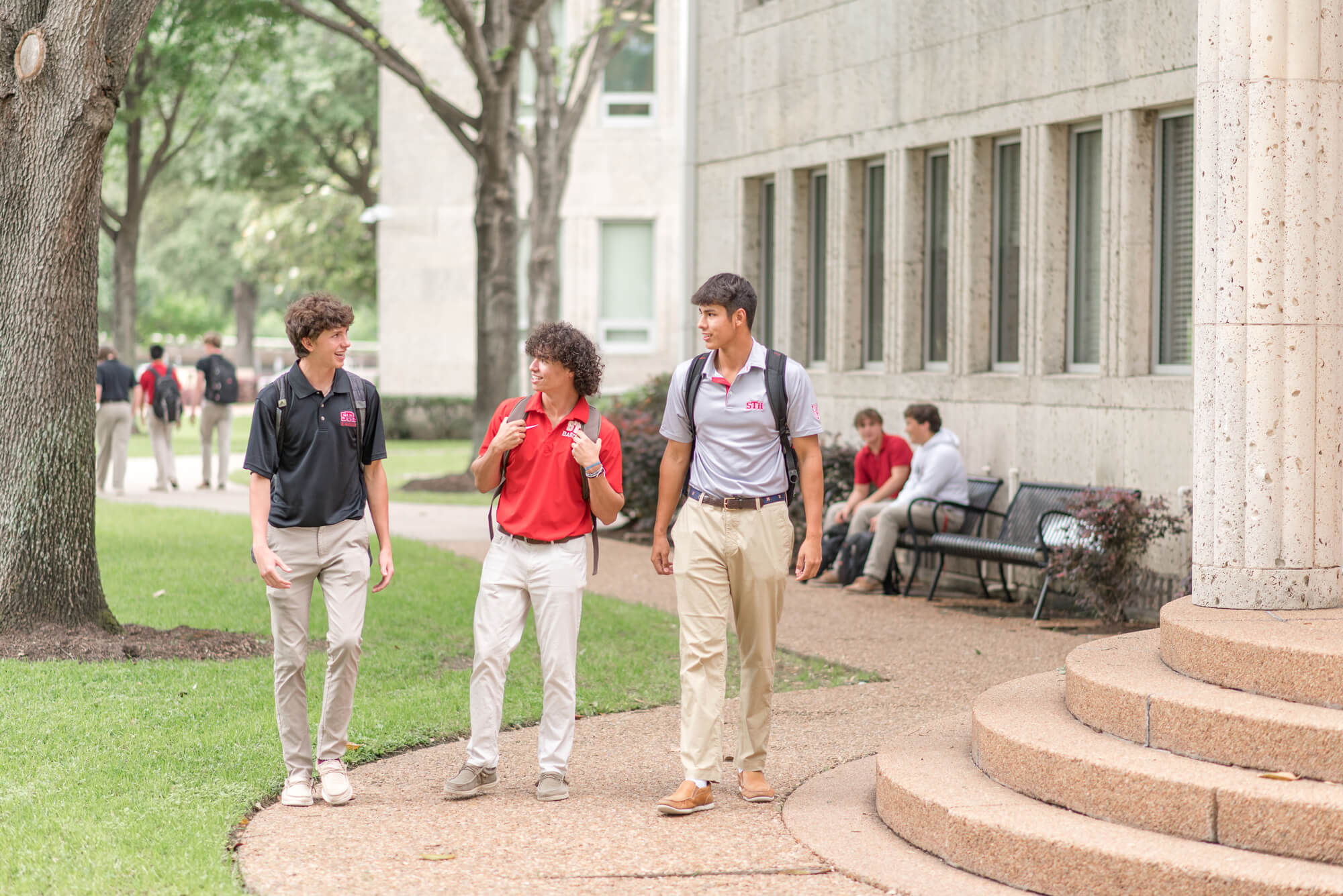It’s Time to Make A Strong Impression
After careful research and deliberation, you’ve decided to apply to private school – congratulations on this important decision.
Private schools typically have limited seats and a competitive application process, so it’s essential to make a compelling case for yourself to stand out among other applicants. First of all, start early: Begin the application process well in advance of the deadline. This gives you ample time to gather materials, review your application, and make necessary revisions. Create a checklist to keep track of application requirements and deadlines.
The Importance of the Application
The most important step in the admissions process is developing a well-crafted, impressive and complete school application. After all, your application is often the first interaction the school has with you. It sets the tone for how the admissions committee perceives you as a candidate. An exceptional application can leave a lasting impression on the committee, making them more likely to remember you when making their final decisions. Finally, a well-prepared application demonstrates your seriousness and commitment to the school.
But first, it’s time to get organized: admissions timelines, deadlines and requirements are different for every school. Make sure you know what is due and when at the school(s) of your choice – so there are no surprises later.
Collect Your Materials
In Houston, most private schools are going to require some common documents – transcripts, test scores, resumes, letters of recommendation, etc. Some may also require essays, resumes and student and parent interviews. Together, they create a comprehensive picture of your capabilities and potential. At least one year before your desired enrollment, visit each school’s admissions page on their website to start making your list.
- Obtain middle school records (sometimes including standardized test scores, .i.e., ISEE, MAP, ERBs scores etc).
- Most schools will require these documents for admission. Every school is different, but what is important here is to demonstrate that the student is doing well academically in the fall of their 8th grade year – and has made progress over time. Year-to-year trends, as well as standardized testing performance, may be examined for steady, solid growth and achievement going back a few grades – something to stress with younger students who have private school aspirations. Private schools favor candidates who demonstrate growth from year to year.
- Submit strong letters of recommendation:
- Letters of recommendation from teachers in core academic subjects like math and English are also important – and often a requirement. These teachers have a critical influence on admission decisions. Most schools in the city of Houston use the HAIS Common Teacher Recommendation form. Click here for an example.
- Their letters should describe a student’s academic progress, enthusiasm for learning, work ethic, classroom behavior and overall contributions to the academic community.
- Some schools may also require additional documents, such as a recommendation from a principal or counselor.
Sharpen Your ISEE Test Skills
The ISEE is the Independent School Entrance Examination, and it’s used for admission to private middle schools and high schools. The ISEE tests Verbal Reasoning, Quantitative Reasoning, Reading Comprehension and Mathematics Achievement—and also contains an unscored essay that is sent to the schools to which you’re applying. If you’re looking to attend an elite private middle or high school, this is a test you’ll need to do well on.
Preparing for the Independent School Entrance Exam (ISEE) requires a structured and focused approach.
Create a Study Schedule:
- Develop a study plan that includes a realistic timeline leading up to the test date. Allocate specific study sessions for each section of the ISEE.
Gather Study Materials:
- Obtain ISEE prep books, online resources, and practice tests. Many test prep companies offer study guides and practice questions specifically tailored to the ISEE.
Work on Vocabulary:
- The ISEE tests your vocabulary in the verbal reasoning section. Build your vocabulary by reading challenging books, newspapers, and magazines.
Practice Math Skills:
- Practice solving math problems regularly, and make sure you understand the concepts behind each question.
Develop Reading Skills:
- Read a variety of materials to improve your reading comprehension skills. Pay attention to the main ideas, details, and author’s purpose in the passages you read.
Take Practice Tests:
- Regularly take full-length practice tests under timed conditions to simulate the actual test experience. Analyze your performance to identify areas that need improvement.
Time Management:
- Practice time management strategies during your practice tests to ensure you can complete each section within the allocated time limits.
Writing an Essay:
- Practice writing essays and the writing sample section. Work on structuring your essays effectively and expressing your ideas clearly.
Seek Support:
- Consider enrolling in a test prep course or hiring a tutor if you need additional support and guidance in your preparation.
Test Day Preparation:
- Familiarize yourself with the test location and requirements for test day, such as acceptable forms of ID and what to bring. Get a good night’s sleep before the test. Get there early – and good luck!
Tell Your Story
Many schools will require an essay or personal statement as part of the admissions package. A well-written essay or statement can provide insight into your character, values, and personality, helping the school assess whether you would be a positive addition to their community.
How to Create a Strong Personal Statement or Essay:
- Follow the provided essay prompts or guidelines carefully.
- Be authentic and honest in your writing.
- Highlight your unique qualities, experiences, and goals.
- Be sure to mention specific aspects of the school that attract you, such as unique programs, faculty, or opportunities. Admissions committees appreciate applicants who have done their homework and can articulate why they want to attend that particular institution.
- Edit and proofread your essay to eliminate errors.
Connect with an Interview
Personal interviews are also often an admissions requirement. Being prepared for this interview is essential because it’s an opportunity for you to showcase your personality, interests, and suitability for the school.
Here are some tips to help you make your interview the best it can be:
Research the School:
- Learn as much as you can about the school, its mission, values, programs and extracurricular activities. This will help you tailor your responses to align with the school’s culture.
Know Your Application:
- Review your application materials, including your essays, and reflect upon your relationships with teachers and classmates. Be prepared to discuss the information you provided and expand on your experiences, interests and achievements.
Practice Common Interview Questions:
- Prepare responses to common interview questions, such as:
- “Tell me about yourself.”
- “Why do you want to attend this school?”
- “What are your strengths and weaknesses?”
- “What extracurricular activities are you interested in?”
- “How do you contribute to your community or school?”
Be Genuine and Positive:
- Be yourself during the interview. Authenticity is important. Stay positive and enthusiastic about the school and your potential future there. Demonstrate that you WANT to be a part of the community!
Prepare Questions:
- Prepare questions to ask the interviewer about the school. This shows your genuine interest. For example, you could ask about the school’s approach to a specific subject or activity or inquire about the school’s community involvement.
Dress Appropriately:
- Dress neatly and appropriately for the interview.
Be Punctual:
- Arrive on time for the interview. Better yet, be 10 minutes early. Being late can create a negative impression that can color the entire interview.
Prepare for Specific Questions:
- Be ready to answer any school-specific questions that may come up, such as how you will contribute to the school community or how you’ll handle challenges.
Mock Interviews:
- Consider conducting mock interviews with a family member, friend or teacher to practice answering questions and receive feedback.
Follow Up:
- After the interview, consider sending a thank-you note or email expressing your gratitude for the opportunity to interview and reiterating your interest in the school.
Take the First Step
If you’re interested in learning more about admission to St. Thomas High School, an all-boys private Catholic college preparatory school in Houston, Texas, you can find information about preparing your application on our website at sths.org/admissions/prepare.
For specific questions about admissions to St. Thomas, please contact the Admissions Office at 713-864-6348 ext. 175 or Admissions@sths.org.








